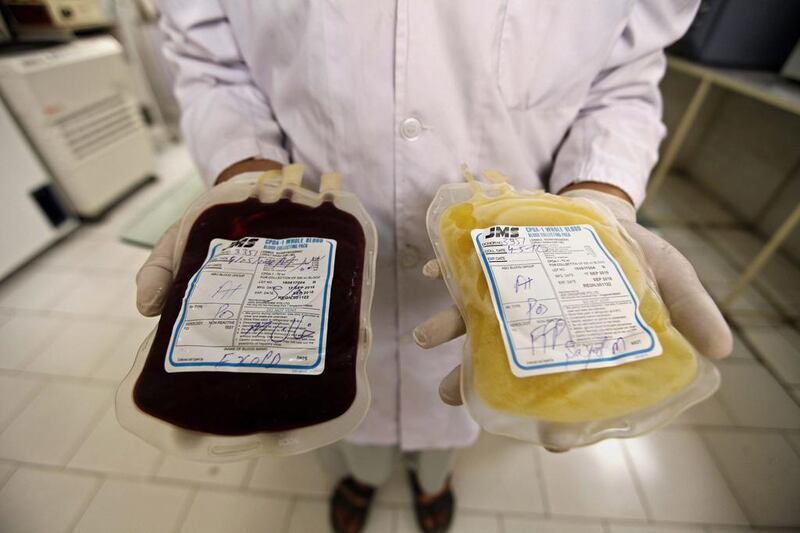DUBAI // Doctors say the blood disorder thalassaemia could soon be wiped out in the UAE, as figures show no new cases have been recorded in Dubai since 2013, despite 8.5 per cent of Emiratis being carriers.
The Thalassaemia Centre made the announcement on Sunday to mark World Thalassaemia Day. Figures show a major step in research and awareness of the condition in the UAE, which has some of the highest global rates.
Dr Essam Dohair, a specialist haematologist and coordinator at Dubai Health Authority’s Thalassaemia Centre, said there had not been a single new case of a baby born to a Dubai Emirati couple with thalassaemia in three years.
“The cases we have received are from Emirati couples from other emirates and expatriates and this number has also dropped,” Dr Dohair said.
“Therefore, the trend clearly reflects that rise in awareness levels directly results in reduction of new cases of thalassaemia. Our aim is to ensure no new baby is born with the disease in the UAE and this is actually a very attainable goal.”
Doctors said campaigns in schools, colleges and universities, and the premarital screening law for genetic diseases introduced in 2006, were major contributors to the drop in the hereditary disease.
The disorder results in the destruction of red blood cells, which leads to anaemia. Figures show about 4 per cent of children born in the UAE suffer from genetic disorders as a result of their parents being related.
Since 2007, the centre has begun exhaustive community education, teaching young people about the importance of the pre-marital law and its benefits.
Pupils after Year 12 are advised to be tested to find out if they were a thalassaemia carrier.
Doctors advise couples to be screened well in advance of wedding plans so if both are carriers of the gene, they should avoid the nuptials.
If both partners have thalassaemia, each pregnancy carries a 25 per cent risk that the child will be born with the disease. There is a 50 per cent chance the child will only be a carrier and a 25 per cent chance the child will not be affected.
“If only one person has thalassaemia, the baby will be a carrier but will not have thalassaemia. It’s not the best case scenario but it’s OK,” Dr Dohair said.
newsdesk@thenational.ae





